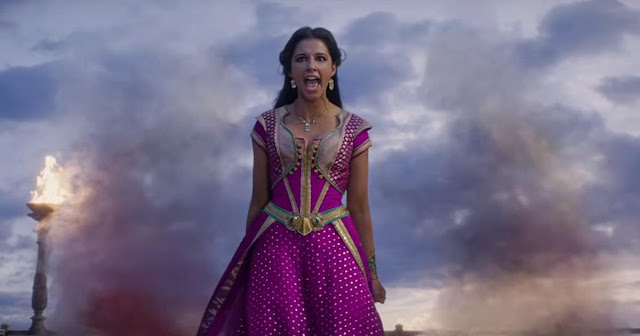Every so often, someone makes a silly complaint about a Disney Princess movie instilling poor morals, and I am always ready to defend it. The latest silly accusation stems from the opening of Snow White's Enchanted Wish at Disneyland Park. This refurbished dark ride is a reimagining of the former Snow White's Scary Adventures with new animatronics in honor of Disney's year-long Ultimate Princess Celebration. Amongst the new animatronic showcases is a pivotal scene from the classic 1937 animated film in which the prince gives Snow White true love's kiss, reviving her from a deathly slumber so that she can be free to live out her happily ever after. A few days ago, two journalists from a publication called SFGATE released an article complaining about this non-consensual kiss that has put the internet into an uproar. Let's discuss the moral ethics of true love's kiss.
The concept of true love's kiss is not unique to
"Snow White and the Seven Dwarfs." Many fairy tales and fairy tale-inspired films invoke this concept as the most effective method to break a curse. A kiss of true love is "not just any kiss," as Ursula explains to Ariel in
The Little Mermaid about how to restore the curse on her voice. This means that a magical spell-breaking kiss will only work if it is from a person that the princess loves and wants to be kissed by.
Enchanted played with this concept by having Prince Edward fail to wake Giselle from her curse when it turned out that he wasn't her true love after all. When Robert kisses her and she open her eyes, she smiles and says "I knew it was you." In any fairy tale where a curse must be broken by a kiss, it is intrinsically required that the kiss is mutually desired.
That doesn't mean, however, that cursed princesses are never taken advantage of in their sleeping states. In a version of "Sleeping Beauty" called
"Sun, Moon, and Talia" by Giambattista Basile, the cursed maiden is raped by a king, gives birth to two children in her sleep and awakens after one of her children sucks the flax from the spindle out of her finger. Disney's Snow White and Princess Aurora were fortunate enough not to suffer such a terrible fate. Disney's "Sleeping Beauty" reimagining,
Maleficent, goes as far as exploring the validity of Aurora's desires by not having her wake up when Phillip kissed her after knowing her for even an shorter time than he did in Disney's 1959
Sleeping Beauty. Therefore, we can rest assured that Snow White was ready and willing for her prince to come exactly when he did if singing "Someday My Prince Will Come" during the film's midpoint was not enough evidence already. Contrary to what the authors of the SFGATE article believe, the spell would not have broken if had not been true love's kiss.
Let's say, for argument's sake, that the curse's magic was not intuitive about love and that any kiss would have broken it. Does that mean that the prince should not have kissed her and instead should have waited for someone more malicious like the king from Basile's version of "Sleeping Beauty" to do it for him? Think of the curse as the equivalent of a disease with a kiss as the only procedure that could cure the life of the afflicted patient. Would it be better to let them die rather than undergo a minor potential risk from the procedure? If a person is physically unable to communicate their own medical decisions, their closest relative is granted power of attorney. There's no way to know for sure that this relative's decision will align perfectly what the patient wants, but as someone who loves them, they have to do what they think is best. Though Snow White is not yet married to the prince at the end of her movie, the only relative she had was the one who cursed her to die in the first place. Therefore, we can assume from her desire to marry the prince that he is the closest thing she has left to next of kin. Why wouldn't he want her to survive and live out their mutual dream to unite in matrimony?
The undeserved outrage over this beautiful new animatronic is just another example of how modern feminism is overpowering the femininity that we love about our favorite heroines. I, for one, am thrilled that the updated ride includes this pivotal and reassuring moment from the movie's climax that reassures audiences that Snow White would achieve her happy ending after everything she suffered through at her stepmother's hand. Modern versions of "Snow White" like Once Upon a Time prove that her character can be strong and empowering without needing to give up the desire for love. Her story is one of the most romantic fairy tales ever written because it proves that love can not only be validating, but life-saving as well.













Comments